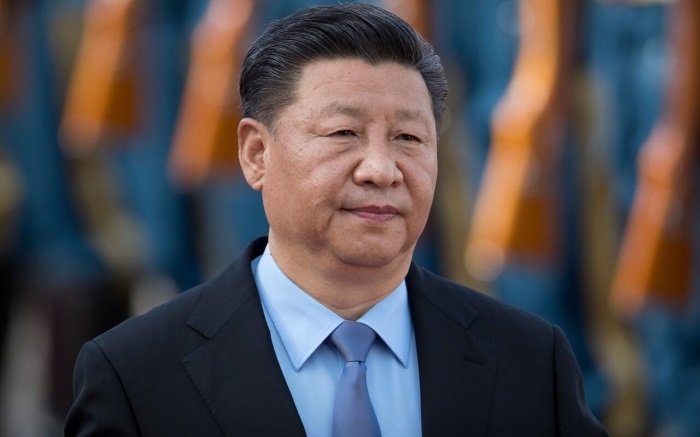World
Xi Avoids Red Sea Conflict Despite Risks to China Trade
Amidst escalating tensions in the Red Sea, the US and UK have initiated airstrikes to counter Iran-backed Houthi rebels. Notably absent from direct involvement is China, the world’s second-largest economy, strategically positioned on the sidelines.
Economic Stakes and Cautious Calculations
Despite significant economic interests, with China importing half of its crude oil from the Middle East and holding a higher export volume to the European Union than the US, President Xi Jinping calculates that the current costs haven’t surpassed the risks and potential benefits of direct involvement. The recent surge in the Shanghai Containerized Freight Index reflects the economic toll of potentially rerouting ships around Africa.
Parallel Diplomacy in Global Conflicts
According to The Washington Post report, observers note parallels between Xi Jinping’s approach in the Red Sea and China’s stance in the Russia-Ukraine conflict. The country calls for peace without condemning or substantially contributing to peace efforts. Jennifer Welch, Chief Geo-economics Analyst at Bloomberg Economics, explains, “They don’t see much to gain from taking a stronger position.”
Diplomatic Posture Amidst Airstrikes
As the US and UK initiate airstrikes, Chinese Foreign Ministry spokeswoman Mao Ning expresses deep concern. However, she refrains from committing to any specific action, maintaining a cautious diplomatic posture. Analysts suggest that this approach enables China to observe, potentially fueling anti-American sentiment in parts of the Middle East. Simultaneously, it positions itself as a neutral arbiter.
Geopolitical Limitations and Regional Dynamics
While some Middle Eastern nations urge China to leverage its regional influence, the Asian giant faces limitations in influencing the Houthis or Iran, both crucial players in the Red Sea dynamics. William Figueroa, an assistant professor researching China and the Middle East, highlights that China’s power projection capability in the Gulf is minimal. Additionally, China expresses an unwillingness to participate in larger conflicts.
Unforeseen Opportunities Amidst Conflict
Some in Beijing see an unexpected advantage in the Houthi attacks, according to a WSJ report. Professor Xiao Yunhua suggests that the disruption could lead to an increased adoption of rail networks by traders. This aligns with Xi Jinping’s Belt and Road Initiative.
Shipping Companies and Diplomatic Signaling
As tensions escalate, major Chinese shipping companies, such as China Cosco Shipping Corp., have halted deliveries to Israel due to threats. However, at least five vessels traversing the Red Sea signal their connection to China to avoid potential targeting.
Balancing Act in Global Strategy
The standoff may affect the cost of Chinese energy imports. Xi Jinping navigates cautiously to mitigate potential backlash, both internationally and domestically. This is particularly crucial amid concerns about Chinese military expansionism and rising nationalist sentiments. The situation underscores China’s nuanced geopolitical strategy, balancing economic interests and global stability.

